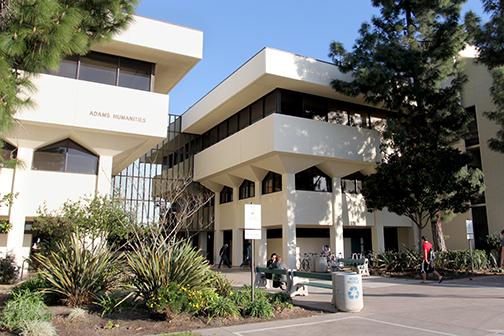San Diego State will offer a recently approved rhetoric and writing studies major to students starting in fall 2014.
According to the new course overview, the RWS major will address rhetorical theory, educate about literacy and writing and delve into professional and public writing. It will also examine written discourse.
SDSU’s RWS is the only rhetoric department in the California State University system, professor and chair of the RWS department Glen McClish said.
“I want to stress that a new enterprise like this is always a leap of faith; you simply don’t know,” McClish said. “There could be a thousand students or only one student to enroll, so there has to be a certain optimism.”
In fall 2011, there were 37 students with a minor in RWS, McLish said. He said this number is significant because there is currently no major, so the discipline is not as well-known among undergraduates. Students currently minoring in RWS vary from communication to chemistry majors, according to the major overview.
In a 2011 survey conducted by the department, 78 percent of students said they “wanted to see a major like RWS 200” at SDSU.
In contrast to the RWS major’s content, SDSU’s English major focuses literature but other kinds of creative and cultural texts, such as film, TV, music and other media, undergraduate adviser for the Department of English & Comparative Literature Phillip Serrato said.
The main difference between the English major is it focuses on a body of literature, whereas rhetoric writing focuses on how writing operates in comparison to the rest of the world, McClish explained.
“A thorough understanding of rhetorical principles and facility in writing are vital for professional success and increasingly important in today’s knowledge-driven, globalized society,” RWS professor Suzanne Bordelon said.
Bordelon said she worked with Ellen Quandahl, McClish, Cezar Ornatowski and other RWS faculty members to develop the curriculum for the new major.
On Oct. 24 at the Love Library, professor and former program head of technical communication at Arizona State University Barry Maid will suggest some ideas that the RWS department may want to consider as it implements its new major.
“They need to make sure the new major connects with students’ needs and then they need to connect with those students … find them, retain them, and stay connected after they graduate,” Maid said.
Understanding student and employer needs and putting together an academically sound major will help prepare students for graduate or professional school and careers, Maid said.
This is the fourth new major in the College of Arts and Letters in the past three years, associate dean of College of Arts and Letters Eniko Csomay said.
Csomay said the College of Arts and Letters aims at assuring quality undergraduate education to students, providing them with 21st century skills in critical thinking, collaborative team work, leadership and international engagement.
“With our old and new programs, including RWS, we would like to change the generally perceived image of liberal arts education, which often suggests an ivory tower type of disengagement with the outside world, to show just how much liberal arts is part of our lives,” Csomay said. “We cannot be well-rounded people without it.”
Photo by Monica Linzmeier, photo editor.







